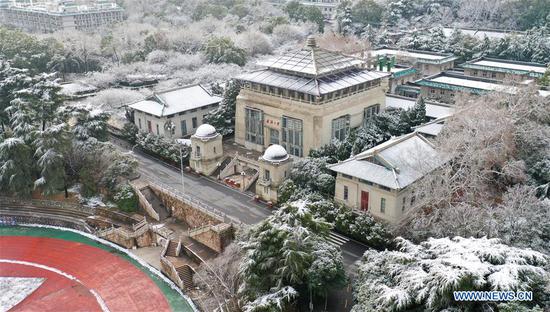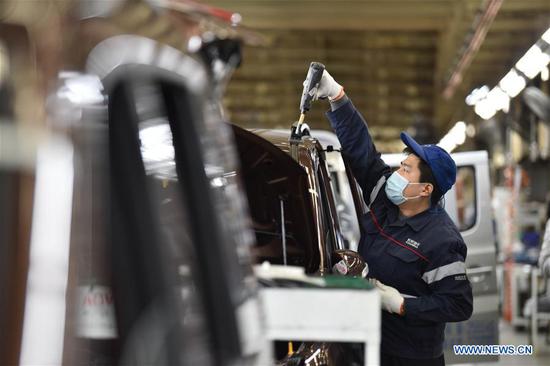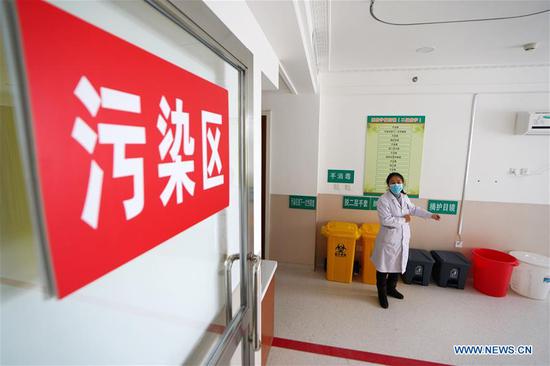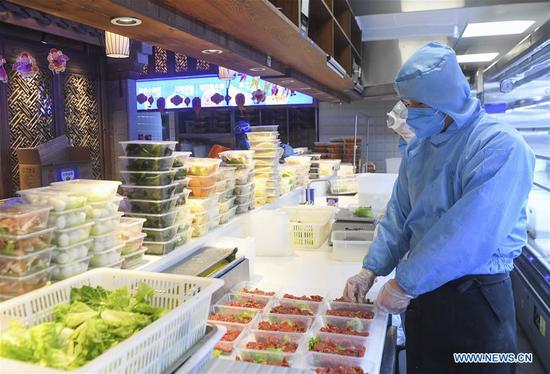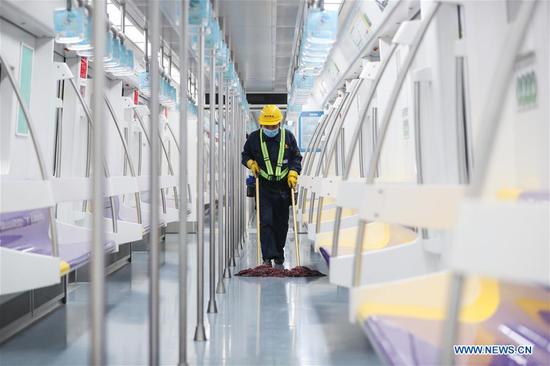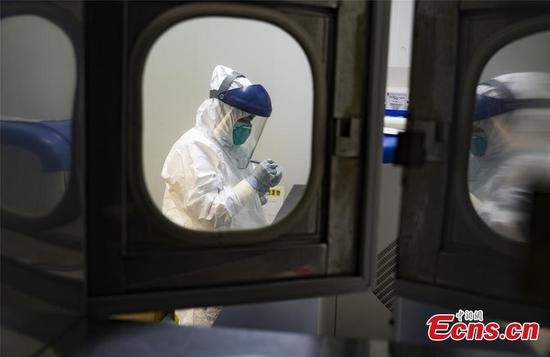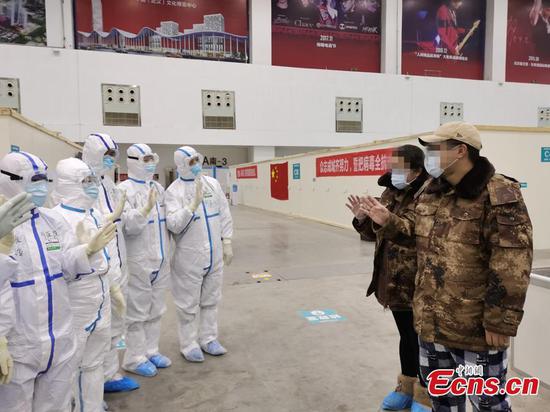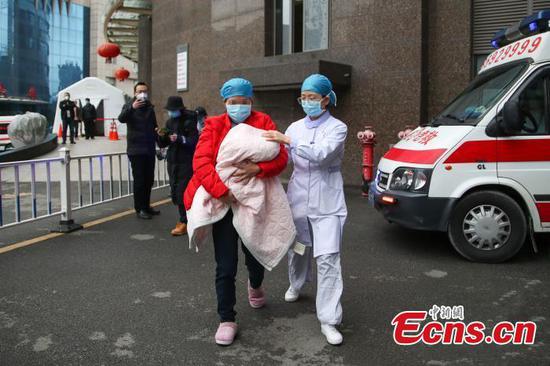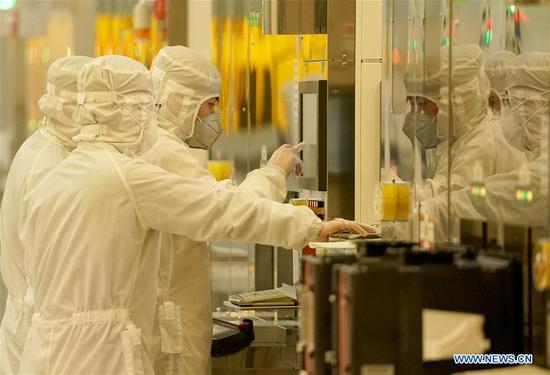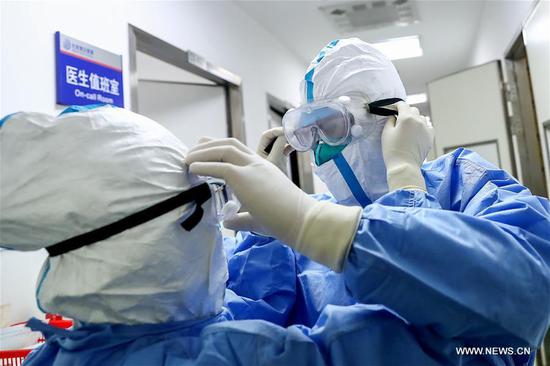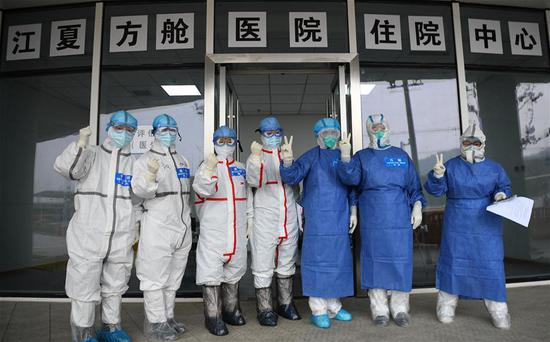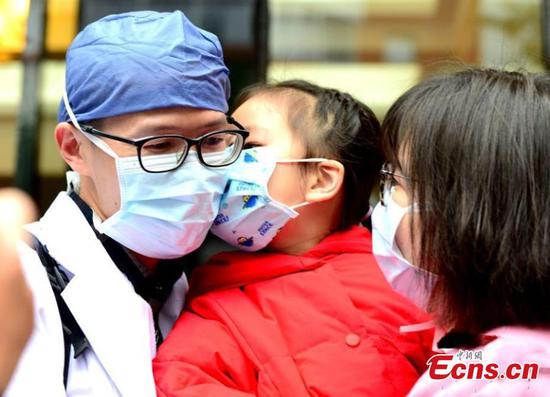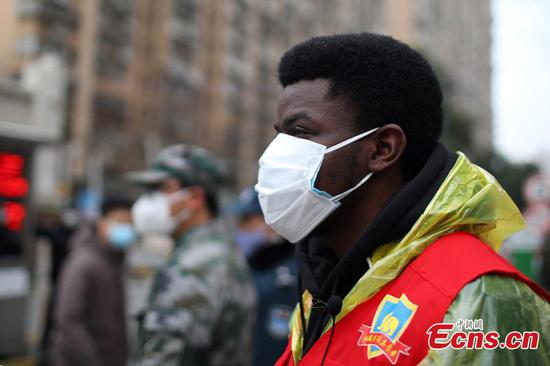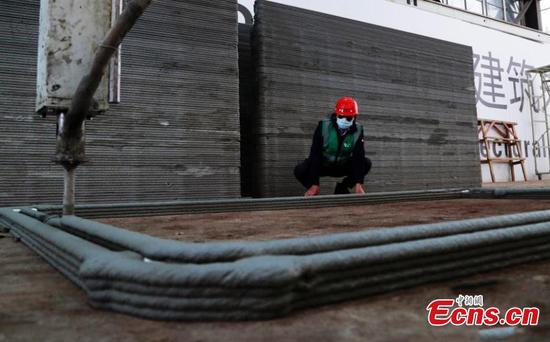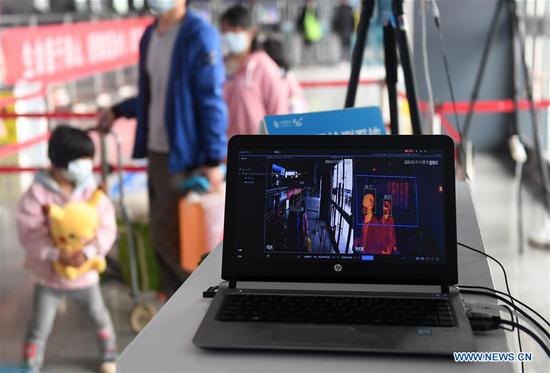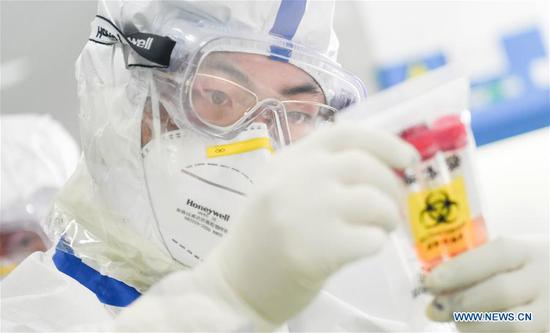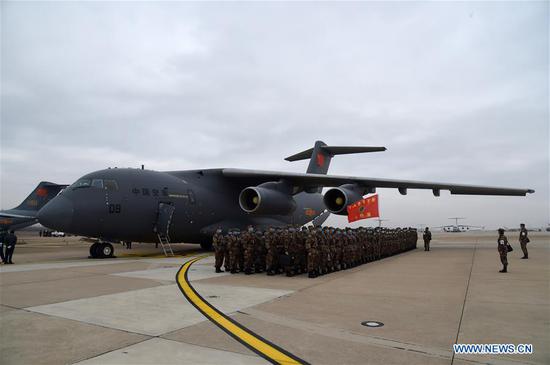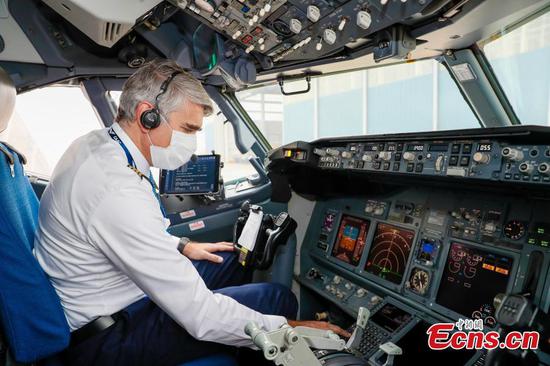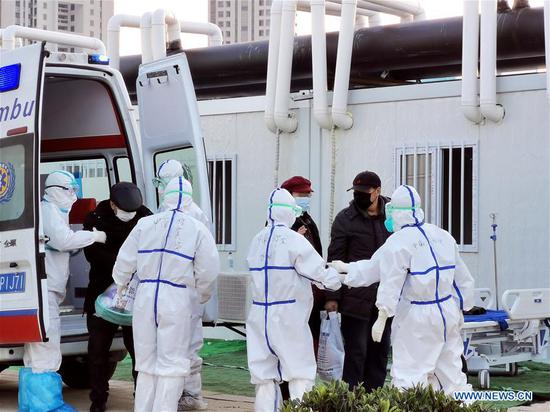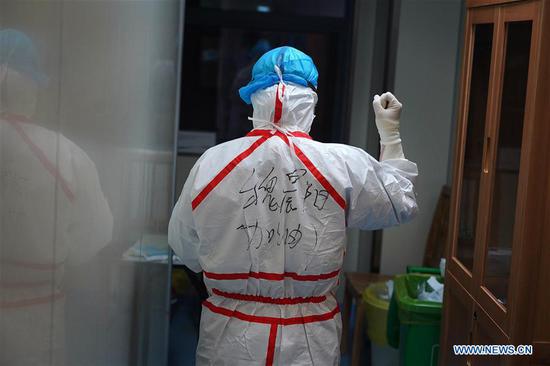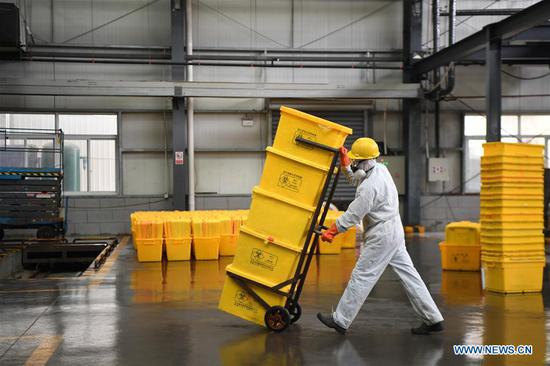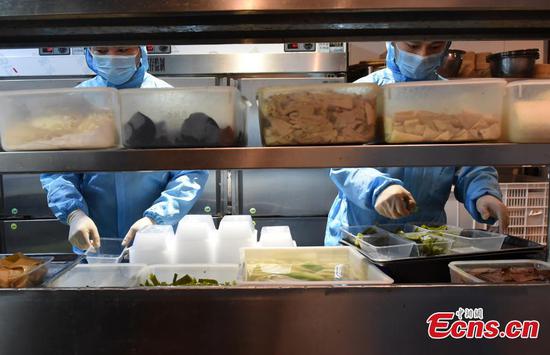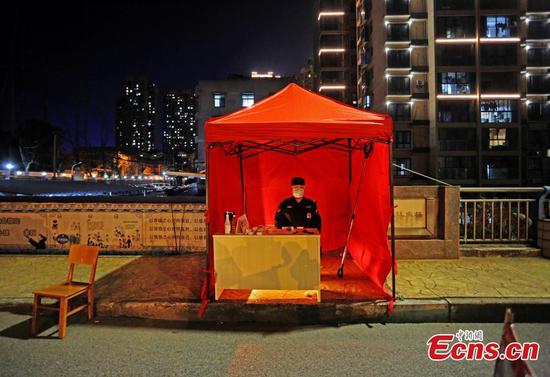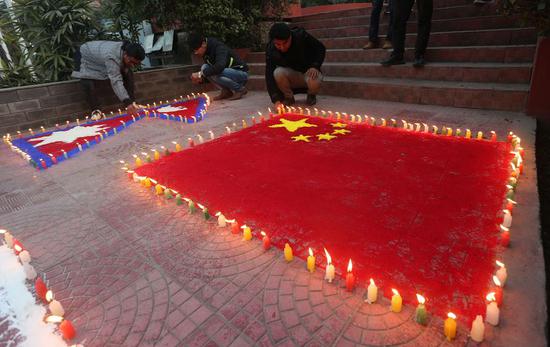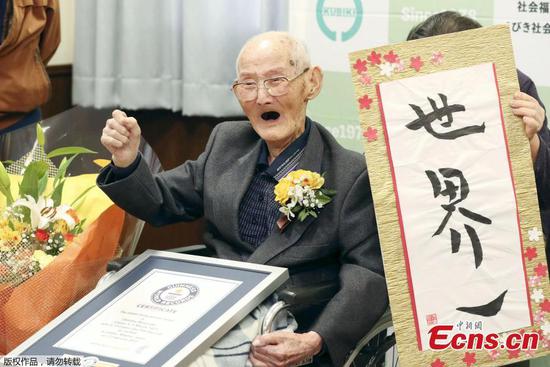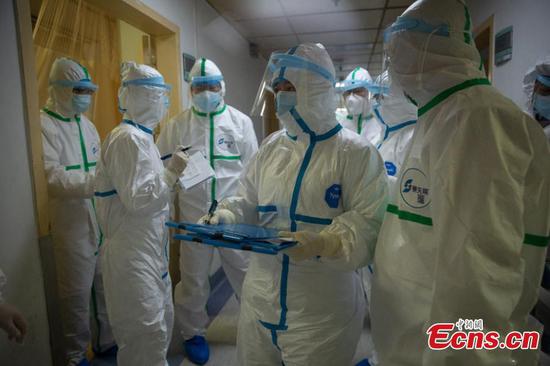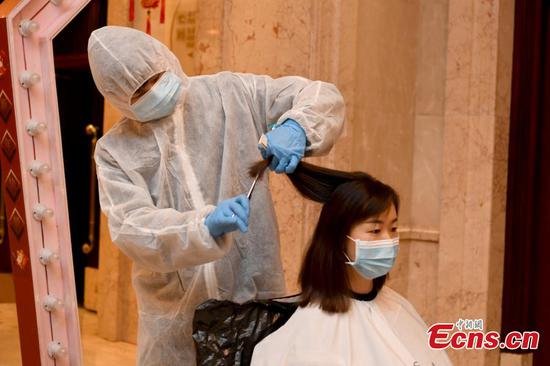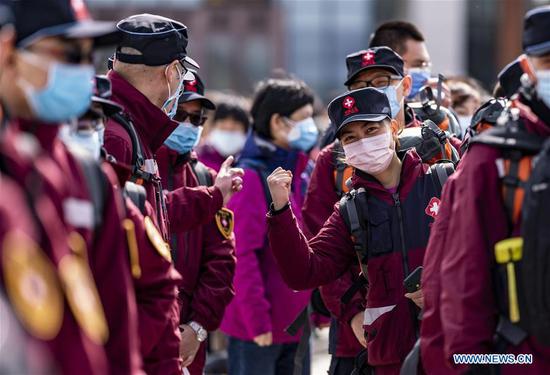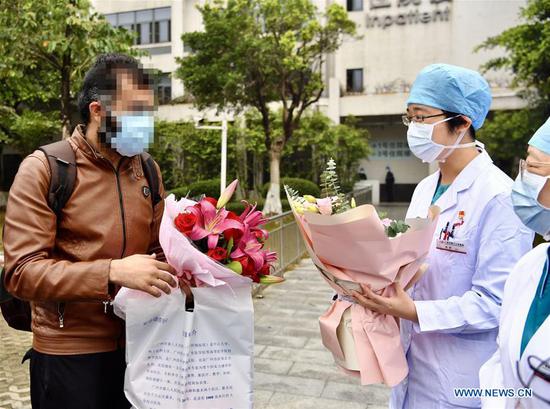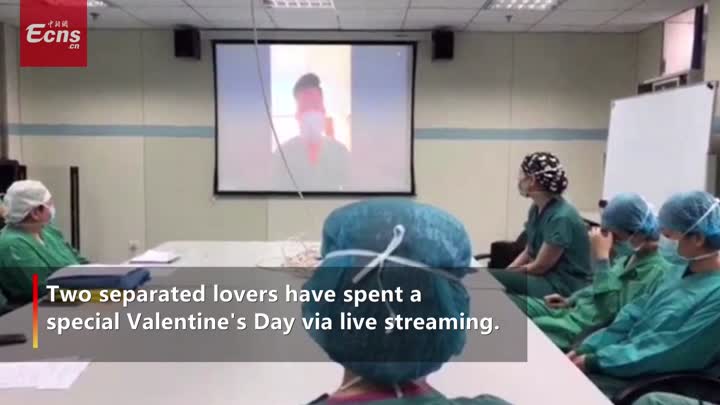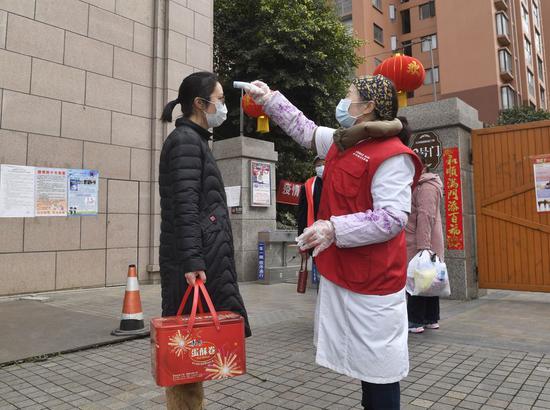
A community medical worker measures body temperature for a resident in Chengdu, capital of southwest China's Sichuan Province, Feb. 4, 2020. (Xinhua/Liu Kun)
Nearly 4 million workers from China's primary-level medical and health institutions have played an important and unique role in the fight against the coronavirus, a health official said Sunday.
The medical institutions include both community health service centers in cities and clinics in rural areas, said Zhu Hongming, an official with the National Health Commission, adding that some of them provide round-the-clock services.
In the wake of the outbreak, medical workers at the primary level have engaged in timely detections of fever patients and suspected cases to ensure the implementation of isolation and patient transfer, while they also need to carry out daily diagnosis and treatment for common diseases and the management of chronic diseases, Zhu said.
The medical workers have conducted carpet screening alongside community workers, informing residents who need to carry out home-based isolation and checking their temperature every day, the official said.
Zhu noted that medical workers also work in places with heavy flows of people such as airports and ports to help cut off virus transmission routes at the front lines.
To enhance the prevention and control capability of grassroots medics, a special training program was set up on the website for continuing medical education (www.ncme.org.cn), according to Zhu.
The online training programme, which consists of one separate section for primary-level medical institutions and another for rural doctors, is open to the public for free, Zhu said.
A total of 780,000 grassroots medical workers have received training through the platform to date, he added.









